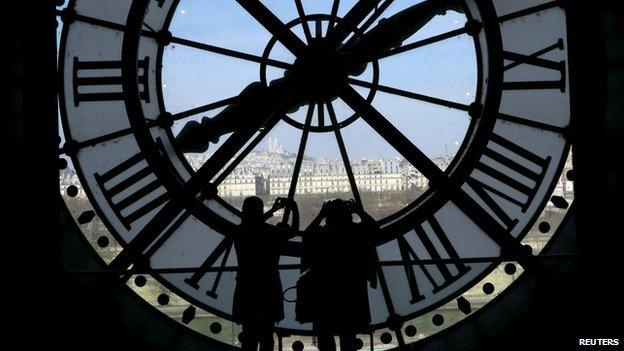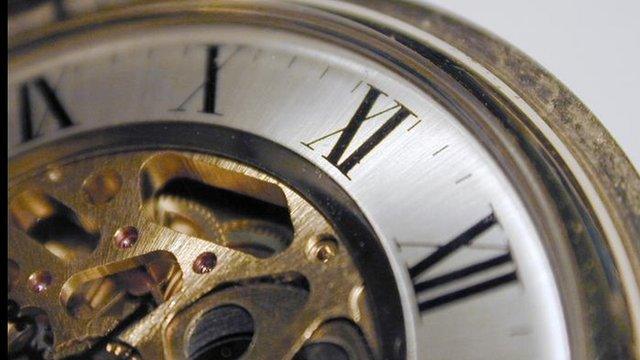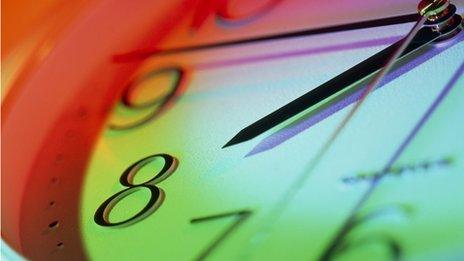'Leap second' added for first time in three years
- Published

Leap seconds help keep atomic time in sync with Earth's rotation; but also cause their own problems
Midnight came later on Tuesday as for the first time in three years an extra second was added to the official time set by atomic clocks.
The "leap second" means the last minute of June had 61 seconds in it.
Leap seconds - and leap years - are added as basic ways to keep the clock in sync with the Earth and its seasons.
However, there are concerns extra seconds can potentially cause problems for some computer systems because it has to be added manually.
Timekeepers are divided over whether to keep the additional unit of time - and the issue is set to be debated at a meeting later this year.
Unpredictable rotation
The addition meant that the last minute of June had 61 seconds; while 23:59:59 UTC usually becomes 00:00:00, the leap second ensured the time became 23:59:60 UTC.
Peter Whibberley, senior research scientist at the UK's National Physical Laboratory (NPL), said: "Because they depend on measurements of the Earth's rotation, which varies unpredictably, leap seconds occur at irregular intervals."
News coverage has focused on the potential for software problems that could affect financial trading and other operations around the world. Mr Whibberley, who works in the time and frequency group at NPL, stressed the need for planning.
"Leap seconds are announced only six months in advance. This means computers and software cannot be supplied with leap seconds programmed in, and they must be inserted manually," he explained.
"Getting leap seconds wrong can cause loss of synchronisation in communication networks, financial systems and many other applications which rely on precise timing.
"Whenever a leap second occurs, some computer systems encounter problems due to glitches in the code written to handle them. The consequences are particularly severe in the Asia-Pacific region, where leap seconds occur during normal working hours."
Because the irregularity of adding leap seconds causes problems for computer networks, several proposals have been put forward to abolish them.
The issue is still being considered by the International Telecommunications Union (ITU) and is set to be discussed at the World Radiocommunication Conference in Geneva in November this year.
Delegates will aim to reach a decision to either end leap seconds or adopt a technical solution to reduce the problems they cause.
- Published3 August 2013

- Published19 January 2012
